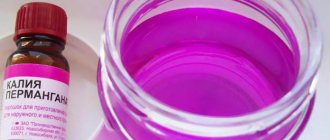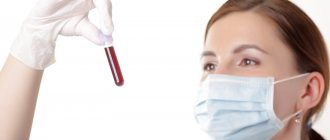Without fanaticism: 8 rules of intimate hygiene
HYGIENE HABITS ARE DEVELOPED IN CHILDHOOD. True, as a recent study showed, Russian parents do not talk to their children about hygiene enough; and if the rule “wash your hands after going outside” is heard in most families, then they are embarrassed to talk about more intimate things.
Both lack and excess of hygiene can lead to problems for which you have to go to the doctor - and, for example, gynecologists have to re-teach their patients basic self-care.
We talked with the candidate of medical sciences, obstetrician-gynecologist Tatyana Rumyantseva and the head of the gynecological department of the ATE clinic Oksana Bogdashevskaya and compiled a list of important hygiene rules that should be followed.
Regularity
Of course, ancient people washed rarely and survived, and the vagina is a self-cleaning system that does not require excessive hygienic efforts, but it is still necessary to regularly remove surface impurities and glandular products from the external genitalia.
It is recommended to wash yourself at least once a day, and better yet, after each visit to the toilet or (during menstruation) each time you change a tampon or pad.
Don’t forget that for intimate hygiene you need to allocate a separate towel for yourself and change it more often.
Plain water is enough
Water perfectly washes away liquid secretions, mucus particles and dust, so in most cases, you can do without soap or gel to clean the external genitalia.
The surfactants in their composition are intended primarily to break down fat molecules - and if used excessively, they destroy the protective hydrolipidic film of the skin.
It is recommended to clean the perianal area with soap, especially immediately after visiting the toilet, but the genitals can be rinsed with plain water.
Front to back
This rule will probably seem obvious to many, but let’s say it anyway: the movement of the hand when washing should always be directed from front to back.
Vaginal flora is safe for the intestines, but intestinal flora is not for the vagina, so you need to try not to “introduce” bacteria from the anus to the genitals.
This applies to the use of toilet paper and hygiene regarding sex toys: nothing should get into the vulva or vaginal area after anal intercourse.
Without fanaticism
There is no need to use antiseptics or antibacterial soap on a regular basis.
You can treat the skin with an alcohol-free antiseptic after hair removal or other damage, but this is the case when there are indications for its use.
In normal, everyday mode, intimate hygiene should not be excessive; The human body produces many secretions, including those with a certain smell, and this does not mean that it is not clean enough.
Forget about such a procedure as douching: it does not bring any benefit, but it can easily destroy the finely balanced microenvironment of the vagina; if there is an infection, this is also a sure way to “drive” it into the higher organs.
There is evidence linking douching (also called “douching”) with pregnancy complications and even the risk of cervical cancer, not to mention infections and inflammatory processes.
The mucous membranes inside the body do not need to be cleansed at all, so we repeat once again: you only need to wash what is located outside, and then without a washcloth.
If soap, then neutral
Intimate hygiene is exactly the case when it is better to use baby soap or gel if you think that simple water is not enough.
The more aggressive the soap, the higher the risk of drying out the skin and mucous membranes and disturbing the microbial balance - all these factors can lead, for example, to the activation and excessive proliferation of bacteria, of which we normally have few.
As a result, the discharge may become larger or an unpleasant odor may appear - and in attempts to “better” clean everything, you can aggravate the situation even further.
We have already said that the microflora can change, for example, when changing the brand of condoms or excessive sweating in the heat.
If you have been diagnosed with thrush or gardnerellosis, there is no need to panic and think that you have become infected - these are opportunistic infections, that is, their pathogens are always present in the body.
It is worth thinking about what factors could provoke such a failure; one possibility is too aggressive hygiene.
Pharmacy products are not a marketing ploy
There are also special products for intimate hygiene. Firstly, they are soft, often with moisturizing components and without excessive fragrances, which can cause irritation or an allergic reaction from the delicate mucous membranes. Secondly, the acidity (pH value) of such products is at a level that is best suited to the intimate area.
True, it is worth talking about choosing such a remedy with a gynecologist. The most common are acidic (low pH) or neutral. Neutral ones are designed to simply replace soap, that is, to serve as a hygiene product that complements water.
Gels with higher acidity help in the treatment and prevention of certain types of vaginosis or vaginitis; Tatyana Rumyantseva notes that for some women they can cause discomfort, so they should be used on the recommendation of a doctor.
The variety doesn’t end there: there are also alkaline (high pH) intimate soaps.
According to Oksana Bogdashevskaya, it is prescribed, for example, for recurrent vaginal candidiasis (thrush) or other conditions characterized by a sharp increase in the population of lactobacilli, that is, normal vaginal microbes. In this case, the environment becomes too acidic, and alkaline soap helps to correct it.
Everyday pads are not a hygiene product
Pads protect underwear from secretions, but do not improve the level of hygiene of the genital organs - and can even cause harm. Bogdashevskaya says that pads too intensively absorb the secretions of small glands located in the vestibule of the vagina.
The glands begin to work as hard as they can, but the vulva may still be left without the protective layer it needs - and this again leads to an exacerbation of bacterial and fungal infections.
In addition, pads, especially scented ones, can themselves cause irritation and itching.
Attention to linen
The recommendation to choose cotton underwear instead of synthetic may seem boring, but tight-fitting polyester underpants can actually be harmful: the heat underneath is not dissipated properly, the skin sweats, and bacteria and fungi multiply rapidly. If you also live in a hot climate, then you run the risk of frequently treating exacerbations of thrush - although for prevention it may be enough to reconsider your choice of underwear and pay extra attention to hygiene.
All this does not mean that synthetic briefs are completely unsuitable for anyone. Our body is capable of compensating for a long time for the changes we push it to make; If you've been wearing polyester your entire life without experiencing any discomfort, you're lucky. But if irritation, itching occurs from time to time, and candidiasis worsens, it makes sense to try changing your panties to cotton or silk ones.
Photos: IKEA, Africa Studio - stock.adobe.com, Irina - stock.adobe.com
Source: https://www.wonderzine.com/wonderzine/health/wellness/231864-vaginal-hygiene
First menstruation (Menarche)
Read also How to treat cirrhosis - list of recommendations and proven drugs 2018
The first period is called "Menarche". Menstruation begins between the ages of 9 and 16 and indicates the body's ability to become pregnant. Often, the age at which a girl’s first period begins depends on the age at which her mother began menstruation, i.e. - established by inheritance.
Signs of your first period may begin a couple of months before your period appears. White or mucous discharge becomes more frequent, the lower abdomen feels a little tight and the chest ache.
The first menstruation may appear as just a couple of drops of blood, which over time develop into regular and equal discharge.
What is menstrual feminism and why is it important?
A 21-year-old Nepalese woman suffocated in a menstrual hut after lighting a fire to keep warm. Such problems are not limited to third world countries. The taboo of menstruation occurs everywhere and often leads to catastrophic consequences.
Pixhere
The body of the deceased Parvati Bogati was found by her mother-in-law. Police said the woman suffered carbon monoxide poisoning after closing the door of the hut, which had no windows, and lighting a fire on the floor to keep warm.
This is not the first such tragedy to occur since the beginning of 2020: in mid-January, 35-year-old Amba Bohara and her two sons died in a cowshed for the same reason. The family spent four days in isolation before their death.
The centuries-old tradition of Chhaupadi, practiced in Nepal, has its roots in Hindu taboos. During menstruation, women are isolated and prohibited from touching certain foods, religious idols, and other people. It is believed that contact with an “unclean woman” brings misfortune.
At the same time, chhaupadi was officially outlawed in Nepal back in 2005. Since 2020, for forcing a woman to comply, the perpetrator will be fined three thousand Nepalese rupees (less than two thousand rubles) and imprisoned for three months.
However, despite the ban, this custom is still maintained in the poor western regions of the country, so the list of victims is constantly growing, and many women continue to live in unsanitary and uninhabitable conditions during menstruation.
Women's problems left without solution
The UN reports that observing chhaupadi provokes diarrhea, pneumonia and respiratory diseases, increases the risk of sexual violence and attacks by wild animals, and increases maternal and infant mortality rates.
But it is not only in Nepal that women suffer discrimination due to menstruation.
According to a 2020 UNICEF and WHO report, at least 500 million girls and women do not have the minimum facilities needed to maintain menstrual hygiene and comfort.
In third world countries, there is an unspoken ban on women speaking up about menstruation-related issues, so they don't get solutions.
In rural India, one in five girls drops out of school after getting their periods, and of the country's 355 million menstruating girls and women, only 12 percent have access to tampons or pads, according to research by Nielsen and Plan India. In India, about 70 percent of deaths associated with diseases of the female reproductive system occur due to lack of access to menstrual hygiene products.
In sub-Saharan Africa, one in ten girls are forced to miss school during school hours.
Prosperous Western countries also face the same problems, but on a smaller scale. In 2020, media reported that schoolgirls in Leeds, UK, regularly skip school because they cannot afford hygiene products.
Girls preferred to stay at home: they were ashamed to come to school because they had to use socks stuffed with napkins, torn T-shirts or newspapers instead of sanitary pads, as is still common in poor sections of society.
In these families, menstrual hygiene products are an unaffordable luxury.
Prejudices and prohibitions
The topic of menstruation remains taboo. People continue to associate menstruation with something dirty and unpleasant or, at best, PMS becomes a joke. The term period-shaming even appeared in the Western press, reflecting the attitude of others towards menstruation as something shameful and indecent.
Many superstitions regarding menstruation are related to religion. And this applies not only to the Chhaupadi tradition and Hinduism.
In Orthodoxy, a woman does not have the right to “approach the Holy of Holies until she is cleansed,” that is, she can attend church and pray during her period, but, according to canonical church rules, she cannot receive communion and be baptized.
In Islam, a woman in the state of haida (menstruation) or nifasa (postpartum bleeding) is prohibited from praying. Among the Jews, in the Old Testament book of Leviticus (15:33) it is written: “When a woman has a common issue of bleeding, she is unclean for seven days, and whoever touches her becomes unclean until the evening.”
Human rights and the “tampon tax”
Although the lack of access to clean bathrooms and intimate hygiene products is now recognized as a violation of human rights, along with the lack of drinking water and gender inequality, there are still imbalances at the economic level even in developed countries.
Thus, tampons and pads in the United States are still subject to increased value added tax in almost 40 states, since they are not considered an essential item, but there is no tax at all on diapers for adults and Viagra.
In Russia, by the way, the situation is much better: hygiene products are included in a special list of medical goods that are taxed at 10 percent, with the main VAT rate in the country being 20 percent.
In Australia last year it was generally o, but in France it was lowered from 20 percent to 5.5.
Menstrual feminism
American feminist and journalist Gloria Steinem wrote an essay in 1978 in which she tried to answer the question: “What would happen if, suddenly, magically, men began to menstruate and women did not?” And he writes: “The answer is clear: menstruation will immediately become an occasion worthy of envy and a great sign of true masculinity. Men will compare and argue about who has longer and stronger periods. Boys will celebrate and show off their periods. Of course, a culture will have religious rituals specifically for this occasion.”
Today, feminists organize actions and launch campaigns, trying to explain to the whole world that periods are normal.
Since 2020, 19-year-old London student Amika George has been calling on the government to provide free intimate hygiene products to children from low-income families as part of her #FreePeriod campaign.
“As a schoolgirl, I was horrified to learn that a natural biological function denies girls the right to an equal education and jeopardizes their academic achievements.
The government’s inaction prompted me to start a campaign,” says the girl.
Drummer and activist Kiran Gandhi, 26, ran the London Marathon without a tampon or pad, wearing a red stain on her leggings to show that women shouldn't be ashamed of their periods. The girl believes that blood should not be an obstacle to playing sports and other everyday activities. By the way, Gandhi took second place.
Kiran Gandhi ran the London Marathon with no tampon to raise awareness for women who have none. Do you support her? pic..com/DLte7O7j3h
— SPIN 1038 (@spin1038) August 10, 2020
In 2020, Essity, which owns the Libresse brand, released an ad in the UK for Blood normal pads, where the blue liquid was replaced with red, without avoiding associations with menstrual blood. In 2020, the video was awarded the Grand Prix Glass Lions: The Lion For Change at the Cannes Lions international advertising festival in France.
Indian-Canadian poet Rupi Kaur posted a photo on Instagram of herself lying in bed with a blood stain on her sweatpants to protest against the social network's policies.
Shortly before this, moderators deleted a photo of a naked girl with menstrual blood on her thighs because it was contrary to Instagram requirements.
So Kaur took and posted this photo in which she is fully clothed, which does not violate the rules.
20-year-old student Arushi Dua from India wrote a letter to Mark Zuckerberg in which she asked him to add an On my period button on Facebook. The girl expressed hope that this could help make the topic less taboo. “Facebook as a social platform is very influential and can make a big contribution to promoting positive attitudes towards menstruation,” she wrote.
Arina Kochemarova
Source: https://snob.ru/entry/171992/
Hygiene and hygiene products during menstruation
Unfortunately, in Russia and many countries of the post-Soviet space, the compulsory school curriculum does not include lessons dedicated specifically to reproductive health, and in general it is not customary to discuss and talk about menstruation openly
But not all girls can be explained by their mother or father what rules need to be followed during menstruation and how to take care of themselves during menstruation, but this is very important !
1 Regular washing
One of the main components of hygiene during menstruation is regular washing.
During menstruation, it is better to refrain from taking a bath and use the shower.
You need to wash yourself or wash yourself at least once a day, preferably in the morning and evening.
It is important! Because despite the fact that the blood leaving the body is sterile, bacteria actively multiply on the hair, on the skin and on sanitary pads or tampons in a dark, warm and humid environment, which can negatively affect the microflora of the vagina.
- After washing, be sure to use a fresh pad or tampon.
- You need to wash yourself with warm water in the direction from the clitoris to the anus, the buttocks should be washed last.
- If you use a mild cleanser, remember that you need to be sure to wash off all the foam from the skin: it is very delicate, and even the mildest products can cause irritation, especially if left on the skin for a long time.
- Specialized detergents for intimate hygiene are intended for external use only.
- Avoid douching (washing inside the vagina). The vagina is an organ with a mucous membrane and its own microflora, and such invasive procedures can disrupt the natural acid-base balance, which can further lead to the appearance of thrush or vaginosis. If you notice an unusual odor, irritation or any other unusual signs, you should definitely consult your doctor!
- You need to dry yourself with a clean towel.
- If you have heavy periods and are afraid of getting the towel dirty, you can use a soft napkin or paper towel, but be careful not to damage your delicate skin.
- Make sure there are no wet areas outside before getting dressed, because covered wet skin can encourage the growth of bacteria and other harmful microorganisms.
2 Clean linen and loose clothing
For the same reasons, it becomes even more important to wear only clean underwear and change them regularly.
During menstruation, it is better to wear cotton underwear because it allows air to pass through, which means it prevents the growth of bacteria.
- Try not to wear tight-fitting underwear and clothes during menstruation, because tight-fitting clothes contribute to increased body temperature and sweating, and therefore more active growth of bacteria and harmful microorganisms.
- Remember that underwear made of synthetic materials is not intended for regular wear, especially during menstruation.
- If you sweat a lot, it is best to change your underwear and pad immediately afterward.
3 Regular change of hygiene products
In addition, you need to change your sanitary pad or tampon regularly (pad every 4 hours, tampon every 2 hours).
Remember: pads and tampons need to be changed not only as needed, depending on the intensity of bleeding, but even when they are not fully used, since bacteria begin to actively multiply on them in a warm and humid environment.
- Don't use tampons at night; they're not meant to last that long.
- If you have heavy bleeding, then at night it is better to use special night pads with increased absorbency
- If you are afraid of damaging the hymen with a tampon, then don’t worry: in fact, the entrance to the vagina in girls is not closed with a thick film that needs to be pierced. Typically, the vaginal crown is very soft and elastic, and is shaped like rose petals or a crescent moon. In the vast majority of cases, it stretches rather than tears.
- At first, it may be easier and more convenient for you to use special tampons with an applicator (it works on the same principle as syringes, pushing the tampon inside from a plastic capsule).
Source: https://kotex.ru/blog/cut-mesyachnykh/gigiena-i-gigienicheskie-sredstva-vo-vremya-menstruatsii
| Of course, intimate hygiene is a habit that is laid and formed in girls from childhood. From the age of 10, girls begin to experience changes in the body that are caused by the endocrine glands, the pituitary gland, which produces and stimulates the development and function of the gonads. During adolescence, the activity of the thyroid gland becomes more intense. The adrenal cortex produces hormones that have a general effect on the development of the body. The ovaries begin to release a hormone into the blood, as a result of which the body becomes more feminine. The ovaries contain a large number of follicles. In the follicles of an adult girl, eggs mature. Regularly, every month, one of them is separated. The maturation of a new egg in the ovary, its advancement into the uterus and release from there lasts an average of 4 weeks, this period is called the menstrual cycle. If the unfertilized egg dies, then the blood, along with the rejected cells of the mucous membrane, is thrown out of the uterus. MenstruationMenstruation is a normal part of life for healthy women of reproductive age, but each woman experiences the period differently. For some, menstruation is painless and like clockwork; others experience lower back pain, nausea and severe unbearable cramps. Some lose little blood - less than 56 grams, others so much that it can lead to anemia, fatigue and dizziness. With the onset of menstrual function, hygiene of the genital organs and hygiene of intimate places becomes especially important. It is during puberty that the activity of the sweat and fat glands increases. In addition, during menstruation, the stability of the female body decreases, and especially significantly the stability of the reproductive system itself. It is enough to lie on damp ground during menstruation to catch a cold in the appendages and then suffer for many years from nagging pain in the lower abdomen, in the lower back, and from disorders of menstrual function. It is enough to swim in a pond during menstruation to get inflammation of the uterine lining (endometritis) with periodic bleeding, painful menstruation, and sometimes infertility. Of course, these risky actions do not always lead to such consequences, but gynecologists treat many women who at one time allowed such a frivolous attitude towards their health. During bleeding (menstruation), you should not do anything that can increase the bleeding: sunbathing, hiking, jumping, running, eating hot and spicy foods. At the same time, it is harmful to spend the first days of menstruation in bed when there is no reason for this. You should dress especially warmly, avoiding cooling your legs, lower back, and lower abdomen; you can perform everyday work, only slightly reducing the load. Monthly cycle calendarYou should keep a monthly calendar , or at least develop the habit of remembering the start date of your last period . Knowing the duration of the cycle, you can plan your affairs to a certain extent, so that menstruation does not coincide with any important event related to the load, participation in which is planned in advance. a menstrual cup (mouth guard) with you . The fact is that menstruation can begin with slight discharge, the intensity of which increases over the course of several hours. Rules of intimate hygieneWith the onset of menstruation, it is necessary to know and carefully observe all the rules of intimate hygiene for women and girls . You should wash yourself with running warm water - since hot and cold water can lead to prolongation of menstruation. On ordinary days, you should wash yourself twice a day - before going to bed and in the morning when you get out of bed; during menstruation - at least 3-4 times a day. You should wash from front to back; You need to wipe the external genitalia with blotting movements rather than rubbing, as this can lead to abrasions and facilitate the penetration of infection. If the mucous membrane of the genital organs is irritated, it is advisable to use an infusion of chamomile, tea, or string to wash away. |
Popular questions
I haven’t had normal menstrual days for 2 months, but that month I had brown ones.
But I swam in the river. And this month, for 3 days I felt sick on and off, temperature 37.2, weakness, dizziness, constipation, I couldn’t walk for a while, but I started drinking from my stomach. I began to walk small and when I didn’t feel like it, I forcibly peed and the urine was nuclear yellow, but now it’s clear, now there’s no nausea, there’s only weakness, but constipation, there’s pain in the lower abdomen, and for some reason I want to blow my stomach out. But there was never sex, only I swam when they were brown. Am I pregnant or not? To clarify the fact of pregnancy and the cause of the cycle disorder, you need to contact an obstetrician-gynecologist for an appointment, perform a pregnancy test on the morning portion of urine, conduct the necessary examinations - a general blood test, a general urinalysis, a smear for flora, an ultrasound. Only then can an accurate diagnosis be made.
The previous menstrual cycle began in April. Today is already the 6th day of delay. The test shows a positive result. But here's what's annoying. On May 9 and May 13 there was pain in the right ovary. The pain was acute and lasted 2-3 hours. I only got an ultrasound on May 22. And the gynecologist-uzist only said that my right ovary was slightly enlarged. The uterus is clean, everything is fine. and I left to wait for a new cycle. But there was a delay.. Now I don’t know what to think. Wait? Donate blood for hCG? Should I make an appointment right away?
You should start with an hCG test (taken on an empty stomach) over time after 2 days, twice, and then consult an obstetrician-gynecologist.
Hello, my last period started on 05/11/2019, the cycle is floating, 27-34 days, pregnancy tests - the second dim line. On June 27, 2019, I donated blood for hCG, the result was 494.7 IU/l. Tell me, is this normal and how far along I am in pregnancy, I’m very worried, I’ll see a doctor on 07/04/2019. Thank you.
Hello! This result corresponds to 3-4 weeks of pregnancy. You should retake the test after 4-6 days; if the result increases by 4 or 6 times, you can judge the successful progression of pregnancy.
I need to delay my period by 4, 5 days. Important event. I don’t use hormonal drugs, my cycle is 28 days.
Hello!
Delaying the menstrual reaction is only possible when taking combined hormonal contraceptives. To do this, make an appointment with an obstetrician-gynecologist in advance, clarify the absence of contraindications and select a contraceptive. Discuss with your doctor which regimen is best for taking the drug to shift the period of bleeding. For an accurate diagnosis, contact a specialist








